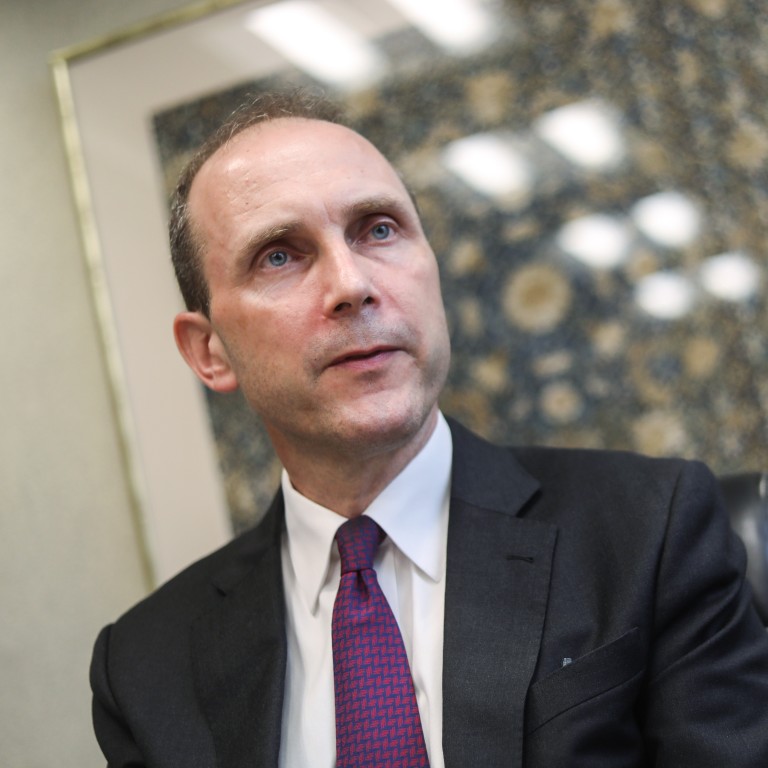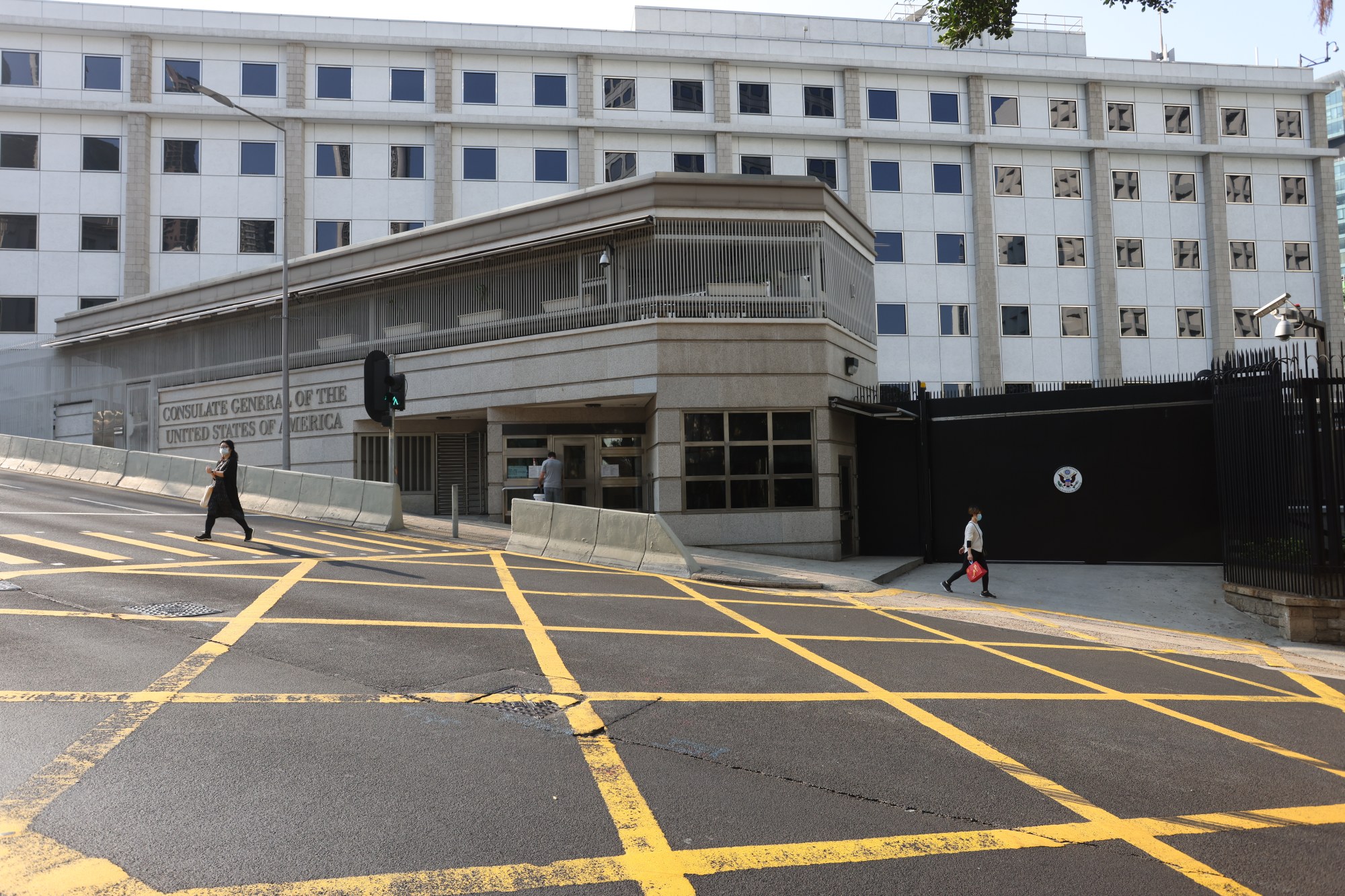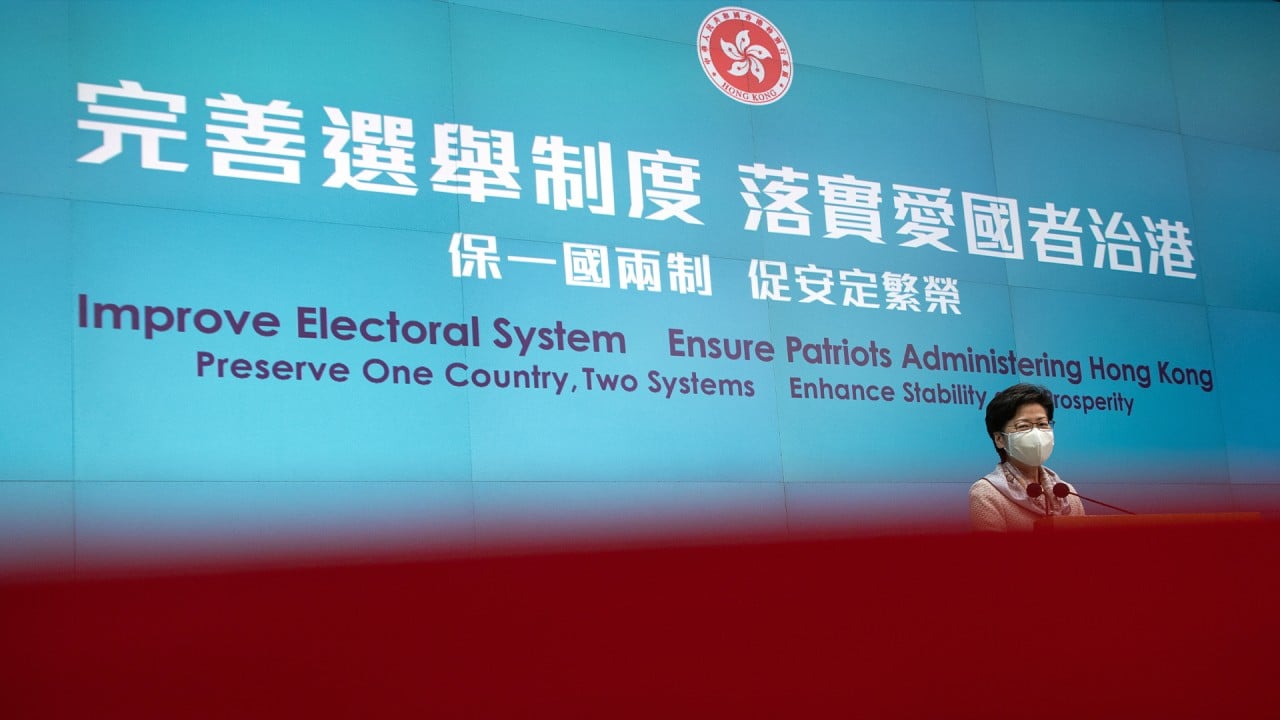
Hong Kong electoral changes do not represent will of residents, future votes will lack credibility: top US envoy
- US Consul General Hanscom Smith says elections will fail to produce any ‘meaningful democratic results’
- Asked about possible sanctions, diplomat says Washington reviewing all available options
But US Consul General Hanscom Smith stopped short of indicating whether Washington would consider slapping more drastic sanctions on Chinese officials in retaliation for the changes, only saying it would evaluate all of its available options.
“Unfortunately, the latest moves by Beijing, once implemented by the Hong Kong government, will ensure that the upcoming [chief executive] and Legco elections will not produce meaningful democratic results, and will be neither inclusive nor credible representations of the will of people in Hong Kong.”
On Tuesday, the NPC Standing Committee approved sweeping changes to the city’s electoral system which would empower the Election Committee – originally tasked with picking the chief executive – the right to nominate all candidates aspiring to be lawmakers and elect 40 representatives of its own to Legco.
The now 1,500-strong committee will control all key elections, while a new vetting committee would also be established to screen out candidates deemed “unpatriotic” with help from the national security police.
Beijing has said the changes were necessary to ensure political power in Hong Kong would be held only by “patriots”, and to avoid a repeat of the anti-government protests which rocked the city in 2019.
Many bodies with new-found influence under electoral shake-up tied to Beijing
However, Smith called the shake-up an “enormous step backwards” and said the US’ concern was that the system “has been essentially rigged”.
The diplomat believed the changes meant it was “virtually impossible for voices that have not been approved by Beijing to achieve any kind of meaningful role” in the city.
Smith was speaking hours after Washington unveiled the State Department’s latest Hong Kong Policy Act Report, which concluded the city did not warrant preferential treatment under US law owing to the erosion of its autonomy at the hands of Beijing.
But the consul general did not signal whether the US would step up its sanctions against their Chinese counterparts, after previous attempts largely failed.

“Our focus is on imposing a cost, deterring and showing our solidarity,” Smith said. “And as I said, we’ll continue to look at the options and the tools that we have to respond to additional assault and erosion of Hong Kong’s autonomy.”
“I continue to meet with people across the spectrum, as does the team,” Smith said. “There are some people on the pro-democracy [and] civil society side who are hesitant to meet with us because they’re worried about being falsely accused of somehow colluding with a foreign power.”
Beijing hits back at critics of radical overhaul of Hong Kong electoral system
Calling the changes a “sad development”, Smith said he believed they ran contrary to what had made Hong Kong successful in the past.
“Hong Kong didn’t become one of the world’s most developed places, through fear and self censorship,” he said. “It became successful through openness, pluralism, and exchange on all fronts.”
Smith also accused the central government of putting increased political pressure on the judiciary by, among other things, accusing judges of bias after protesters accused of rioting and other crimes were acquitted.
But despite “a very difficult year for the people of Hong Kong”, and amid mounting attacks from pro-Beijing media and the souring of US-China relationships, Smith said the consulate had never considered withdrawing from the city.

He said the decision to sell the US government’s multimillion-dollar assets in Shouson Hill was in fact made several years ago by the State Department’s property office as part of a global review of its property portfolios around the world.
Smith said the US had shared “so many values” with Hong Kong, which he said were now “under assault” by Beijing.
“And so we have to be here to promote what we think has worked so well,” he said.


